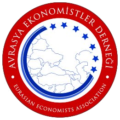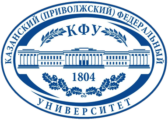
International Conference on Eurasian Economies
9-11 September 2015 – Kazan, RUSSIA
Paper detail
Paper ID : 1363
Status : Paper published
Language : Turkish
Topic : Finance and Financial Crises
Presenter: Prof. Dr. Ahmet Ulusoy
Session : 2C Finansal Krizler
The Macroeconomic Effects of European Debt Crisis and Turkey
Avrupa Borç Krizinin Makroekonomik Etkileri ve Türkiye
- Prof. Dr. Ahmet Ulusoy (Karadeniz Technical University, Türkiye)
- Ph.D. candidate Mehmet Ela (Karadeniz Technical University, Türkiye)
Abstract
European sovereign debt crisis is the period that because of low interest rates, government and private debt increased substantially and also financial crisis transform private debt to high sovereign debt. In this period, low interest rates made government borrowing cost cheap and so sovereign debt increased considerably. In same period, private sector consumption and debt rose and this induced the housing bubbles. The expansionary fiscal policy against the effects of global financial crisis and bail-outs given to banks which are problematic made the sovereign debt highest and debt burden unsustainable for some countries. European sovereign debt crisis affect the world globally with the financial and economic links. Countries implemented fiscal and monetary policies against the recession and unemployment. In this respect, it is worthwhile researching the European sovereign debt crisis which is multifaceted and complex and offering suggestions for Turkey. Turkey must maintain the strong fiscal position and increased country resilience against crisis. And Turkey must also maintain banking regulation and supervision which are intended to steady financial sector. The aim of this paper is analyzing the development of European sovereign debt crisis and its effects; and also emphasizing the actions Turkey can take and offering suggestions for Turkey.
JEL codes: F34, G01, H63
Ulusoy, Ahmet, Ela, Mehmet (2015). "The Macroeconomic Effects of European Debt Crisis and Turkey" in Proceedings of International Conference of Eurasian Economies 2015, pp.388-397, Kazan, RUSSIA.
DOI: https://doi.org/10.36880/C06.01363





